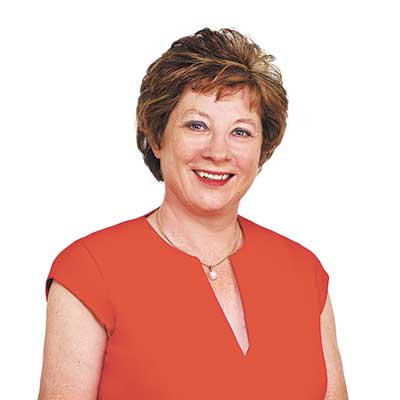President’s comment.
Readers will remember 2010 was the Year of Women in Local Government – an initiative of the Local Government Managers Association (now LG Professionals Australia) and the Australian Local Government Women’s Association (ALGWA) that was supported by the Australian Local Government Association (ALGA), the Federal Government and the Local Government and Planning Minister’s Council. At that time it was said 30 percent of councillors were women, 20 percent of senior managers and five percent of Chief Executive Officers or General Managers. In actual fact the number of women councillors was 28.4 percent – with huge variations across the country.
Today, 31.12 percent of councillors in Australia are women. New South Wales has the lowest percentage at 27 percent. Queensland and South Australia are in the 29s. Leading the country is the Northern Territory with 36 percent, closely followed by Victoria on 34 percent, while Western Australia has moved to third place on 31.6 percent and Tasmania has 31 percent.
Interestingly, it is those States that have a higher proportion of women councillors who in turn have a higher number of female mayors and female CEOs/GMs. In Victoria 35 percent of mayors are women, 34 percent in the Northern Territory compared to 19 percent in NSW. More than a quarter of the CEOs and GMs in the Northern Territory are women and 17 percent in Victoria.
The figures prove having women at the table makes a difference in selecting a woman.
This information was reported to the 2015 ‘State of the Nation’ conference by researcher Denise Conway, as part of the ALGWA 5050 Vision programme, funded by the Federal Government.
Councils who excelled under the Programme showcased their projects. Those featured Councils were Devonport City Council; Broken Hill City Council; Central Highlands Regional Council; City of Ryde; Holroyd City Council and Darwin City Council.
Why is gender equality important? As the new Canadian Prime Minister Justin Trudeau said: “Because it is 2015.”
It is often said that a council that does not reflect its community cannot serve its community. There is a lot of research that shows companies with a higher proportion of women in their top management have better financial performance. The Reiby Institute reported that companies with women on the Board out performed those without by 8.7 percent.
Also, it is accepted that to tackle Domestic Violence we must tackle gender equity. A European study reported that gender equity reduces the risk of violence by two-thirds and confirmed that where the level of gender equity is high the level of physical violence is low.
Later in the year the ALGWA will be re-launching the 5050 Vision programme and ALGWA will be actively encouraging and supporting women candidates in those States with elections – Queensland and Victoria.








